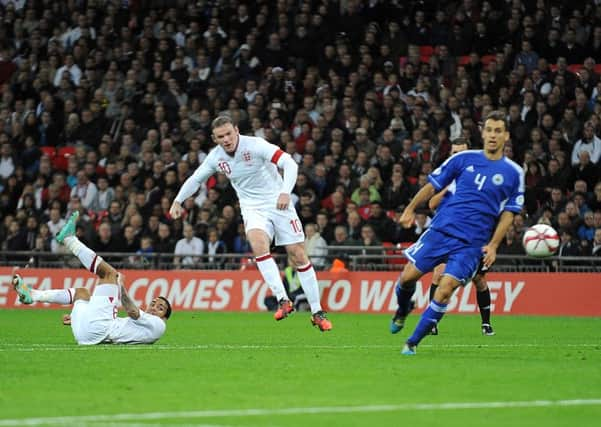James Montague: Underdogs who remind us of football’s true spirit


Perhaps it was in the West Bank, where tens of thousands watched the Palestinian national team play their first ever home World Cup match, just a few metres from the concrete wall that brutally divides it from Israel.
Or was it when I met the players from Eritrea’s national team, a country that treats its people so badly that it has been dubbed the North Korea of Africa? Over 50 international players have defected while on international duty.
Advertisement
Hide AdAdvertisement
Hide AdOr was it in Brazil last summer, when I watched nihilistic street kids and protesters unhappy at the expense and corruption associated with this summer’s finals riot, burning out shops and houses as I lay on the floor choking on tear gas as flash grenades and bullets exploded all around me?
For the best part of three years, I have been travelling across the globe covering the qualification process for the 2014 World Cup finals in Brazil that begin today. It has taken me to all six continents, to see dozens of matches and meet hundreds of players and fans. Along the way there has been an astonishing 820 qualifiers and 2,303 goals.
The first game was all the way back in June 2011, when the tiny Caribbean island of Montserrat played Belize. Montserrat’s Jay’lee Hodgson, a Nottingham-born striker playing for Clifton All Whites in the seventh tier of English, semi-pro football, scored three times. The last qualifier was in November last year when Uruguay drew 0-0 with Jordan in Montevideo.
In that time wars, revolutions and animosities broke out or were rekindled, but I wanted tell the story of the underdogs and outsiders. Teams that might never, ever, reach the World Cup finals but who still embark on often hopeless, Quixotic campaigns regardless and whose stories often go unwritten.
Advertisement
Hide AdAdvertisement
Hide AdThere was another reason to write it too. The English have fallen out of love with the international game. Yet it was the international game that for many of us sealed our love for football and turned it into a lifelong obsession. For me, it was Mexico ‘86.
Something has, however, changed in recent years. Club has trumped country. The Premier League is supreme. And then there’s the ongoing exhaustion with match fixing and allegations of corruption and villainy at Fifa. But, even taking that into account, international football is where we can find the true spirit of the game that we fell in love with.
Thirty One Nil is named in honour of arguably the greatest underdogs of all time. In April 2001, a young American Samoan team with an average age of just 18 headed to Coffs Harbour in Australia for their first ever World Cup qualifier. When the full-time whistle went, the American Samoan goalkeeper Nicky Salapu had picked the ball out of the net 31 times.
I would meet the American Samoa team in Apia, Samoa, 10 years later. Remarkably Salapu was still in goal, and still haunted by the defeat. In the intervening decade they had failed to win a single game. Thirty One Nil covers American Samoa’s qualification campaign for Brazil 2014. I won’t spoil it but with Salapu reborn, a transgender player at centre back and a new, hard talking, chain-smoking Dutch coach in Thomas Rongen, they found redemption.
Advertisement
Hide AdAdvertisement
Hide AdThe same question came back again and again: what motivates someone to pick themselves up after endless humiliations? The answer lies with the almost, but not quite extinguished, flicker of hope. Almost every World Cup has had at least one qualifier with no right to be there: North Korea in 1966 or Cameroon in 1990, teams that had somehow overcome the odds to make it. And in 2014 qualification it was Bosnia, which 19 years ago had just emerged from a vicious civil war.
One team that will never get anywhere near the finals, however, is the tiny microstate of San Marino. All the players are amateur and with San Marino citizenship almost impossible to get without a blood relative the team lost every game heavily and scored just once.
After the last game, an 8-0 loss to Ukraine, coach Giampaolo Mazza quit. He had been in charge for 16 years and was the longest serving national team manager in Europe. During that time he never once experienced a competitive victory.
I asked him what it was in human nature that makes us appreciate a team like San Marino in a completely different way to other teams. “Everyone who is normal sees themselves in us,” he said.
Advertisement
Hide AdAdvertisement
Hide AdI discovered that the true spirit of football, and the true spirit of the World Cup, is found in the teams that didn’t make it. Because sometimes it is not the destination that matters, but the journey itself that counts.
James Montague is the author of Thirty One Nil: On the Road with Football’s Outsiders, a World Cup Odyssey, published by Bloomsbury, price £12.99.